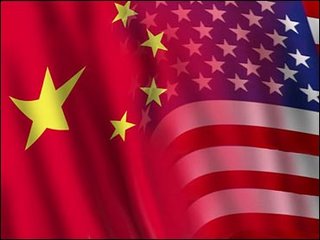NEW YORK
Federal agents arrested Chinese National Fuyi Sun, aka Frank, this week in connection with a scheme to illegally export to China high-grade carbon fiber that is used primarily for aerospace and military purposes, according to officials.
The complaint charges Sun, 52, with one count of attempting to violate the International Emergency Economic Powers Act, one count of  conspiracy to violate the Economic Powers Act and one count of attempting to smuggle goods from the United States.
conspiracy to violate the Economic Powers Act and one count of attempting to smuggle goods from the United States.
Sun was arrested last week after traveling to the United States to meet with undercover agents in an effort to obtain the specialized fiber which, due to its military and aerospace applications, requires an export license for export to China.
“As alleged, Fuyi Sun attempted for years to acquire high-grade carbon fiber for illegal export to China,” said U.S. Attorney Preet Bharara. “Earlier this week, after traveling to New York from China to finalize the deal, Sun allegedly told undercover agents that the carbon fiber he sought was headed for the Chinese military, and then paid tens of thousands of dollars in cash to purchase two cases of it. And to avoid law enforcement detection, Sun allegedly directed the undercover agents to ship the carbon fiber in unmarked boxes and to falsify the shipping documents regarding the contents of the boxes.”
“A top priority of the Office of Export Enforcement is identifying and disrupting the illicit export of items for unauthorized military end-uses and users in China,” said Special Agent in Charge Jonathan Carson of the U.S. Department of Commerce Bureau of Industry and Security’s Office of Export Enforcement New York Field Office. “Carbon fiber has military, missile and nuclear applications. In this case, working with our law enforcement partners we thwarted an alleged attempt to illegally export carbon fiber to China.”
According to the allegations in the complaint that was filed inNew York:
Since approximately 2011, Sun has attempted to acquire extremely high-grade carbon fiber, including Toray type M60JB-3000-50B carbon fiber (M60 Carbon Fiber).
M60 Carbon Fiber has applications in aerospace technologies, unmanned aerial vehicles (commonly known as drones) and other government defense applications.
Accordingly, M60 Carbon Fiber is strictly controlled – including that it requires a license for export to China – for nuclear non-proliferation and anti-terrorism reasons.
In furtherance of his attempts to illegally export M60 Carbon Fiber from the United States to China without a license, Sun contacted what he believed was a distributor of carbon fiber, but which was, in fact, an undercover entity created by HSI and staffed by HSI UCs.
Sun inquired about purchasing the M60 Carbon Fiber without the required license. In the course of his years-long communications with the UCs, Sun repeatedly suggested various security measures that he believed would protect them from U.S. intelligence.
Among other such measures, at one point, Sun instructed the undercover agents to use the term “banana” instead of “carbon fiber” in their communications. Consequently, soon thereafter he inquired about purchasing 450 kilograms of “banana” for more than $62,000.
In order to avoid detection, Sun also suggested removing the identifying barcodes for the M60 Carbon Fiber prior to transshipment and further suggested that they identify the M60 Carbon Fiber as “acrylic fiber” in customs documents.
During meetings with the undercover agents, on or about April 11 and 12, 2016, among other things, Sun repeatedly suggested that the Chinese military was the ultimate end-user for the M60 Carbon Fiber he sought to acquire.
He claimed to have personally worked in the Chinese missile program and asserted that he maintained a close relationship with the Chinese military, had a sophisticated understanding of the Chinese military’s need for carbon fiber and suggested that he would be supplying the M60 Carbon Fiber to the Chinese military or to institutions closely associated with it.
On or about April 12, 2016, Sun agreed to purchase two cases of M60 Carbon Fiber from the undercover agents and paid $23,000 in cash. He paid an additional $2,000 to the undercover agents as compensation for the risk he believed they were taking to illegally export the carbon fiber to China without a license.
Attempting to violate the Economic Powers Act and conspiracy to violate the Economic Powers Act is punishable by a sentence of up to 20 years in prison. Attempting to smuggle goods from the United States carries a maximum sentence of 10 years in prison.
The defendant is presumed innocent unless proven guilty.
To Read the Criminal Complaint Against Sun Click Here: Court Document

